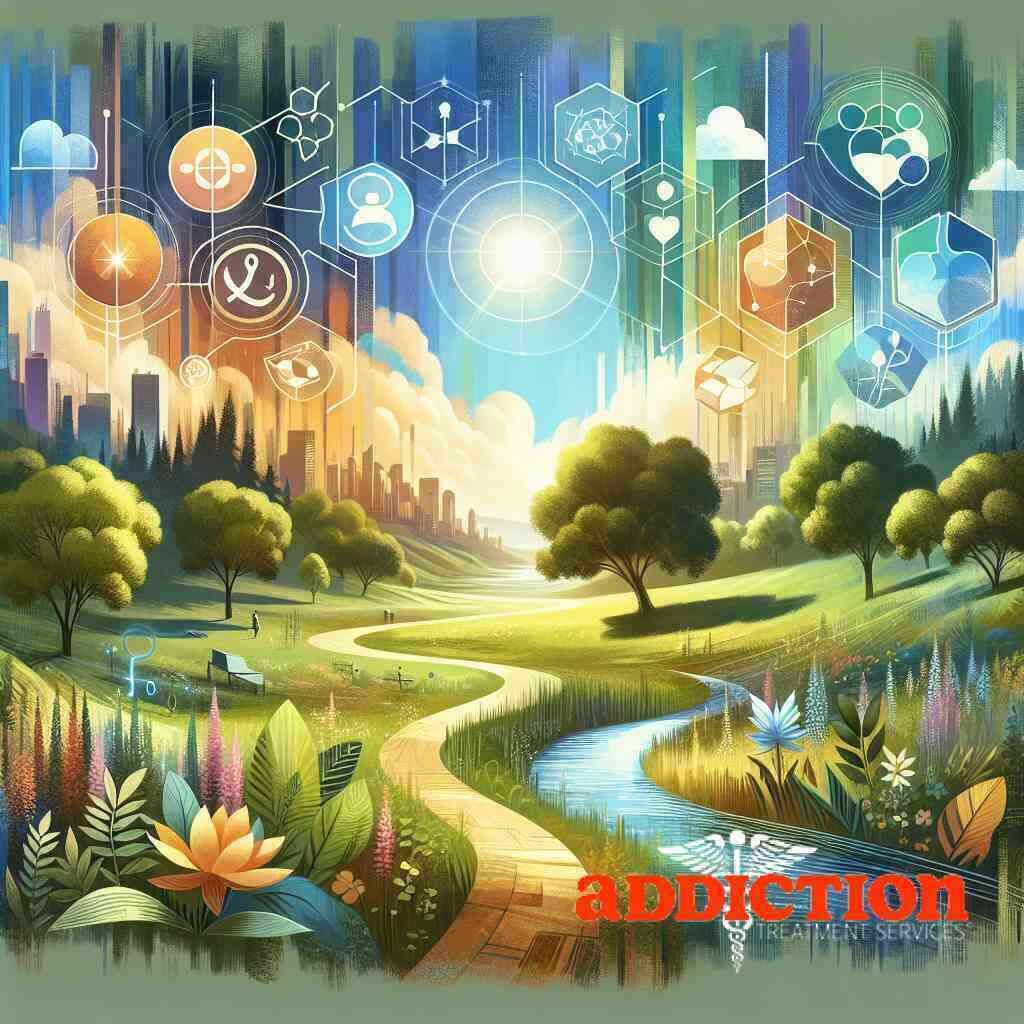 Posted On: 06/17/2025
Posted On: 06/17/2025Introduction to New York’s Addiction Treatment Evolution
Understanding the Addiction Landscape in New York
New York has long battled with the repercussions of substance use disorders, reflecting a microcosm of the national addiction crisis. The densely populated urban centers and rural regions see differing patterns in substance misuse, from the opioid epidemic to alcohol and other illicit drug use. The diversity of the state’s demographics necessitates a multifaceted approach to addiction treatment. As such, New York continually evolves its addiction recovery services to combat these challenges. The comprehensive addiction care methods being implemented are critical to understanding how the state is moving toward a more inclusive and effective model.
Rationale for Advanced Treatment Enhancements
With the persistent complexities of addiction, New York has recognized the need to integrate enhanced methodologies within its treatment facilities. Advanced treatment enhancements arise from a blend of scientific research, technological innovations, and an evolving understanding of substance misuse. By investing in cutting-edge treatment facilities in New York, the state aims to address not only the physical aspects of addiction but also the behavioral and mental health services necessary for full recovery. This rationale supports a movement towards holistic addiction therapy and comprehensive care plans tailored to individual needs.
Key Contributors to the State’s Recovery Journey
The progress observed in New York’s addiction treatment landscape can be attributed to several key contributors. These include governmental bodies offering legislative support, public health advocates driving policy transformation, and New York addiction treatment center experts who tirelessly innovate recovery methodologies. Collaborative care models, such as dual diagnosis treatment approaches and the integration of AI applications for personalized recovery, are setting new standards in treatment facilities. As these sectors work in unison, the path forward for individuals seeking addiction recovery becomes increasingly hopeful and effective.
Innovative Treatment Methodologies
Integrating Cutting-Edge Technology in Recovery
The integration of cutting-edge technology in addiction treatment has revolutionized recovery strategies across New York. From wearable devices that monitor physiological signals to advanced telehealth platforms, technology empowers individuals to take charge of their recovery journey like never before. These technological innovations are pivotal for early intervention and continuous monitoring of relapse triggers and withdrawal symptoms. Cutting-edge technology also facilitates better communication between patients and healthcare providers, ensuring real-time support and immediate adjustments to treatment plans. This seamless integration of technology into addiction treatment fosters a more responsive and personalized recovery experience for those battling substance use disorders.
AI and Its Role in Personalized Recovery Plans
Artificial intelligence (AI) is transforming how recovery plans are tailored to individual needs, offering a new paradigm in achieving sustained sobriety. By analyzing vast datasets, AI can predict patterns and personalize treatment approaches, making care more effective and patient-centered. AI-driven algorithms craft unique, evidence-based strategies that adapt in real-time to client progress, accounting for both behavioral and mental health parameters. This tech-forward approach ensures that recovery plans are not only comprehensive but dynamically adjusted to enhance treatment outcomes. The use of AI marks a significant leap in precision medicine, enabling more effective personalized care in recovery plans and offering hope for higher success rates in addiction recovery.
Modernizing Detoxification: Techniques That Work
New York’s approach to detoxification has evolved, incorporating modernized methods designed to ease withdrawal symptoms and prepare individuals for effective treatment. Traditional detoxification methods are now complemented by medical advancements and holistic therapies, which facilitate a smoother transition through the initial stages of recovery. Techniques such as medically supervised detox, the use of non-addictive medication-assisted treatment, and supportive care strategies have redefined what detox looks like. This modernized approach not only focuses on the physical aspects of detoxification but also emphasizes mental health stability and emotional well-being. By prioritizing innovative, modernized detoxification methods, these techniques ensure a patient-centric experience that fosters long-term recovery success.
Comprehensive and Holistic Care Approaches
Collaborative Care: Uniting Mental and Behavioral Health
Collaborative care models are at the forefront of comprehensive addiction treatment in New York, harnessing the power of uniting mental and behavioral health services. Substance use disorders often co-occur with mental health issues, necessitating an integrated approach to care. By facilitating open communication and coordination among healthcare providers, both mental health and addiction professionals work in synergy to address all facets of the patient’s needs. This integration enables personalized treatment plans that consider the complex interplay between psychological and substance-related factors. Emphasizing mental health integration with addiction therapy ensures that individuals receive holistic support, ultimately fostering more robust recovery outcomes.
Moreover, these collaborative efforts are further enhanced by innovative addiction recovery strategies that focus on both preventative measures and the active treatment of co-occurring disorders. By breaking down traditional silos and fostering a culture of shared responsibility, New York sets the benchmark for future advancements in addiction treatment services. Such holistic approaches facilitate a recovery process that is both comprehensive and sustainable, making treatment facilities more effective in their mission.
The Role of Holistic Therapies in Addiction Recovery
Holistic therapies have gained prominence as a vital component of addiction recovery, offering diverse and patient-centric methods that complement traditional treatment. By focusing on the mind-body connection, these therapies promote healing and wellness beyond what conventional approaches can achieve. Techniques such as yoga, meditation, and acupuncture address the physical, emotional, and spiritual aspects of recovery, fostering a sense of well-being and resilience in individuals. The inclusion of holistic therapies in substance use treatment underscores the commitment to providing comprehensive addiction care.
These non-traditional methods are increasingly recognized for their ability to reduce stress, improve emotional regulation, and enhance overall quality of life. By integrating holistic therapies into treatment programs, individuals are empowered to engage in their recovery actively, building coping mechanisms that support long-term sobriety. This multifaceted approach to addiction treatment is revolutionizing the field and ensuring that recovery is both attainable and enduring.
Family Involvement in Treatment: Building a Supportive Network
The role of the family in addiction recovery is instrumental in building a supportive network that enhances treatment outcomes. Families are often significantly affected by addiction, and their involvement in the recovery process can provide invaluable support and motivation. Educating family members about addiction and equipping them with tools to support their loved ones is crucial. Programs focusing on family roles in recovery plans ensure that families understand their crucial part in reinforcing treatment objectives and helping prevent relapse.
Active family participation not only aids the individual’s recovery but also facilitates healing within the family unit, offering a united front against addiction challenges. By attending family therapy sessions and participating in support groups, family members can share experiences and learn strategies to create a nurturing environment conducive to recovery. Emphasizing the importance of family involvement reflects New York’s commitment to holistic and community-driven recovery approaches, recognizing that addiction impacts not just individuals but entire families as well.

Transformations in Outpatient and Residential Programs
Telehealth and Its Impact on Accessibility
Telehealth has emerged as a pivotal component in transforming addiction treatment in New York by significantly enhancing accessibility. By mitigating geographical and mobility barriers, telehealth allows individuals to engage in therapy and counseling remotely, ensuring continuity of care even during challenging circumstances. This technological advancement is vital for individuals in rural or underserved areas who might otherwise face challenges accessing treatment facilities. With the integration of video conferencing, real-time texting, and remote monitoring of health indicators, telehealth provides a comprehensive and flexible approach to addiction recovery. Furthermore, the incorporation of telehealth in addiction recovery reflects the state’s commitment to inclusivity and the modernization of treatment methodologies, aligning services with the digital age.
Evolving Intensive Outpatient Programs
Intensive Outpatient Programs (IOPs) in New York have undergone significant evolution, adapting to emerging needs and evidence-based practices. These programs offer structured yet flexible treatment options, enabling individuals to receive intensive care while maintaining daily responsibilities. Evolving with societal and medical advancements, IOPs now incorporate personalized care plans that integrate behavioral therapy, relapse prevention, and mental health services. The focus has shifted towards creating dynamic programs that accommodate individual progress and specific needs, which may also include dual diagnosis treatment approaches. This evolution ensures that participants receive a tailored approach that addresses underlying issues beyond substance use, enhancing the prospects for sustained recovery.
Residential Care Redefined: New Standards and Practices
Residential care facilities in New York are redefining addiction treatment by setting new standards and practices that emphasize patient-centered approaches. The integration of modern amenities and therapies, alongside traditional 12-step programs, ensures a holistic and comfortable environment for recovery. Advances in therapeutic models, such as trauma-informed care and comprehensive aftercare planning, play crucial roles in enhancing the effectiveness of Addiction treatment integration within these settings. This redefined approach fosters a supportive and rehabilitative space conducive to healing by addressing each individual’s unique requirements and fostering long-term commitment to sobriety. As residential programs continue to innovate, they become instrumental in not only addressing addiction but also in empowering individuals to regain control over their lives holistically and sustainably.
Policy and Legal Reforms Shaping the Future
Understanding Legal Reforms in New York’s Addiction Services
New York is continuously refining its legal landscape to better support addiction recovery efforts. Statewide policies have been crafted to enhance accessibility and affordability of addiction treatment services. Legislation has been introduced to expand insurance coverage for addiction treatment centers, ensuring that more individuals have access to necessary care. Additionally, proactive legal initiatives focus on protecting patient rights, emphasizing the importance of identifying effective addiction treatment. These reforms also aim to standardize treatment quality across facilities, fostering an environment where comprehensive addiction care can thrive. As these laws evolve, they not only support the recovery journey but also reflect New York’s dedication to leading the charge in improved addiction recovery outcomes.
New York’s approach to legislation around addiction services highlights a commitment to dismantling barriers that prevent individuals from seeking help. These legal reforms address financial obstacles, ensuring that addiction treatment services near you are within reach for everyone in need. The legal framework now emphasizes holistic addiction therapy, integrating care options that consider both procedural and patient-centered perspectives. By doing so, New York is establishing itself as a beacon for legal reforms that not only address the immediate needs of individuals but also lay the groundwork for long-term recovery success.
Public Health Solutions to the Opioid Crisis
Confronting the opioid crisis requires innovative public health solutions in addiction services. New York is implementing strategies that extend beyond traditional intervention methods, focusing on preventative care and public awareness campaigns. These efforts aim to educate communities about the risks associated with opioid misuse and the importance of early intervention. The state’s public health system is concentrating on expanding access to safe prescribing practices, naloxone distribution, and community support programs to mitigate the crisis’s impact.
Exceptional public health solutions are central to tackling the opioid epidemic, and New York has established multifaceted programs that incorporate community-based initiatives and state-sponsored support. By fostering partnerships between public health agencies, local governments, and treatment facilities, the state is enhancing recovery support services. These solutions not only address the immediate effects of the crisis but also pave the way for sustainable change, transforming New York’s public health landscape into one that prioritizes resilience and recovery.
Addressing Substance Misuse Through Policy Innovation
Policy innovation is fundamental in addressing substance misuse across New York. The state is adopting forward-thinking policies that target the root causes of substance use disorders, emphasizing prevention, treatment, and recovery. Innovative policies incorporate comprehensive data analysis to identify trends and craft tailored interventions. By leveraging insights from behavioral health advancements, these policies are more effectively aligning with community needs and ensuring broad accessibility to addiction services.
New York’s policy efforts focus on cultivating an environment where substance misuse is not stigmatized but addressed through empathy and understanding. This shift is evident in initiatives that integrate mental health services and provide robust support for dual diagnosis treatment. By examining the dual diagnosis definition in recovery, policies are crafted to ensure all aspects of a person’s health are supported during recovery. These innovations underscore a renewed emphasis on holistic care, revolutionizing New York’s approach to addiction treatment and ensuring that individuals receive the comprehensive support necessary to rebuild their lives.
Innovative Relapse Prevention and Recovery Support
Advanced Relapse Prevention Strategies
New York has made strides in enhancing relapse prevention strategies to ensure those in recovery remain on a sustained path to sobriety. Utilizing a combination of cutting-edge technology and robust support systems, these strategies focus on equipping individuals with practical tools to recognize and mitigate triggering stimuli. Advanced relapse prevention models incorporate behavioral therapies and predictive analytics to identify high-risk scenarios. How Does ATS Innovate Relapse Prevention Tactics? By leveraging insights from these technologies, treatment facilities in New York can proactively adapt individualized care plans, enhancing the ability to thwart relapse before it occurs. This proactive approach is pivotal in providing individuals with the lifetime skills needed to manage their triggers and maintain sobriety.
Moreover, comprehensive approaches are designed to address both the physical and psychological aspects of substance use disorders. Through techniques such as mindfulness training and stress management, individuals build resilience, fostering long-term recovery successes. The state’s commitment to incorporating these forward-thinking strategies highlights its leadership role in addiction recovery and innovation.
Utilizing Support Groups for Long-Term Success
Support groups play a vital role in reinforcing sobriety and providing a community network for individuals in recovery. Programs like AA Meetings (Alcoholics Anonymous) and NA Meetings (Narcotics Anonymous) have long been staples of the recovery process, offering a supportive environment where individuals can share experiences and learn from one another. In New York, these groups now integrate with digital platforms, allowing participants increased accessibility and flexibility through online meetings, ensuring that support is available irrespective of location.
These groups contribute significantly to the development of coping mechanisms and provide emotional and social support crucial for avoiding relapse. Long-term success in addiction recovery hinges on the availability of empathetic networks, which not only offer encouragement but also accountability. These networks inspire individuals to remain committed to their recovery plans, alleviating feelings of isolation and reinforcing their commitment to positive behavioral change.
Evidence-Based Methods Ensuring Sustainable Recovery
The emphasis on evidence-based treatment methods in New York’s addiction services reflects a dedicated effort to ensure sustainable recovery outcomes. These methods include cognitive-behavioral therapy (CBT), motivational interviewing, and contingency management, each grounded in scientific research and tailored to meet individual patient needs. By adopting such methodologies, treatment centers are able to offer patient-centric plans that are responsive and adaptable.
Evidence-based treatments are powerful because they provide a structured framework that not only addresses the immediate need for sobriety but also fosters long-term lifestyle changes. The incorporation of AI’s role in addiction treatment further enhances these strategies by providing analytical insights that help refine and personalize therapy approaches. As these methodologies continue to advance, they hold the promise of breaking the cycle of addiction, ensuring that recovery remains a lasting journey.

Conclusion: The Path Forward in Addiction Treatment
Summarizing New York’s Advances in Treatment
New York’s addiction treatment landscape has undergone remarkable advancements. With a firm commitment to innovative strategies, the state is leading the way in combating substance use disorders. From integrating cutting-edge technology in recovery to embracing comprehensive addiction care methods, the state’s approach is both holistic and evidence-based. Policies promoting advanced methodologies in addiction treatment in New York have yielded substantial progress. By emphasizing personalized and inclusive treatment, New York is setting a precedent for other states, offering hope for more effective recovery journeys.
Envisioning Future Developments and Continuing Challenges
While significant strides have been made, the road to overcoming addiction is ongoing. Future developments will likely focus on deepening the integration of AI and other technologies to enhance personalized care further. However, challenges remain. Addressing the socioeconomic determinants of addiction and ensuring equitable access to treatment services continue to be pressing issues. By advancing Innovative addiction recovery strategies, New York endeavors to bridge these gaps, ensuring that advancements in care are accessible for all demographics, thus supporting sustained recovery for every individual.
Inspiring Hope: Steps Towards a New Era in Recovery
The future of addiction treatment in New York holds promise, not only through technical advancements but by nurturing hope and resilience. Programs emphasizing the role of family involvement, community support, and regulatory reform are transforming the recovery process. By fostering an environment where patients feel supported and understood, these initiatives inspire hope. As New York continues to excel in Behavioral health advancements and adopt opioid crisis solutions, it is paving the way for a new era in recovery. This commitment ensures a brighter future, where substance use disorders can be effectively managed and overcome.
Frequently Asked Questions
Question: What are some modern detoxification techniques discussed in the Ultimate Guide to New York’s Addiction Treatment Enhancements?
Answer: The Ultimate Guide to New York’s Addiction Treatment Enhancements highlights several modern detoxification techniques that have been integrated into treatment facilities across New York. These include medically supervised detox processes, which use non-addictive medication-assisted treatment to ease withdrawal symptoms and effectively prepare individuals for further treatment. Additionally, supportive care strategies that prioritize mental health stability and emotional well-being are also emphasized, ensuring a comprehensive and holistic detoxification experience. These methods are designed to foster long-term recovery success by addressing both the physical and psychological aspects of detox.
Question: How does Addiction Treatment Services implement personalized recovery plans in New York’s addiction treatment landscape?
Answer: Addiction Treatment Services plays a pivotal role in implementing personalized recovery plans within New York’s addiction treatment landscape. By leveraging cutting-edge technology and artificial intelligence, personalized recovery plans are crafted to adapt in real-time to the client’s progress. This allows care to be more effective and patient-centered, taking into account the unique behavioral and mental health parameters of each individual. Our approach ensures that each recovery plan is not just comprehensive but dynamically adjusted, enhancing treatment outcomes and supporting sustained sobriety.
Question: What role does telehealth play in transforming addiction treatment services in New York?
Answer: Telehealth has significantly transformed addiction treatment services in New York by increasing accessibility and continuity of care. It mitigates geographical and mobility barriers, allowing individuals in rural or underserved areas to engage in therapy and counseling remotely. Through video conferencing, real-time texting, and remote monitoring of health indicators, telehealth provides a comprehensive, flexible approach to addiction treatment. This incorporation of technology aligns with our commitment at Addiction Treatment Services to provide inclusive and modern addiction recovery advancements, ensuring that individuals receive consistent and accessible care.
Question: How does family involvement enhance recovery outcomes according to the guide?
Answer: Family involvement is acknowledged as a crucial element in enhancing recovery outcomes, as detailed in the Ultimate Guide to New York’s Addiction Treatment Enhancements. At Addiction Treatment Services, we emphasize the importance of educating family members about addiction and equipping them with the necessary tools to support their loved ones. Programs are designed to ensure that families understand their role in reinforcing treatment objectives and helping prevent relapse. Engaging in family therapy sessions and support groups allows families to create a nurturing environment conducive to recovery, facilitating healing within the family unit and providing a supportive network that enhances treatment outcomes.
Question: What are some innovative addiction recovery strategies outlined in the guide?
Answer: The guide outlines several innovative addiction recovery strategies that shape New York’s approach to treatment. This includes integrating artificial intelligence to tailor personalized recovery plans, the use of cutting-edge technology for real-time monitoring of relapse triggers, and leveraging community support through digital platforms for support groups. Additionally, evidence-based treatment methods such as cognitive-behavioral therapy and motivational interviewing are central to our approach at Addiction Treatment Services, ensuring a structured framework for long-term lifestyle changes. These strategies emphasize both the preventative measures and the active treatment of co-occurring disorders, ultimately aiming to foster resilience and sustainable recovery outcomes.


